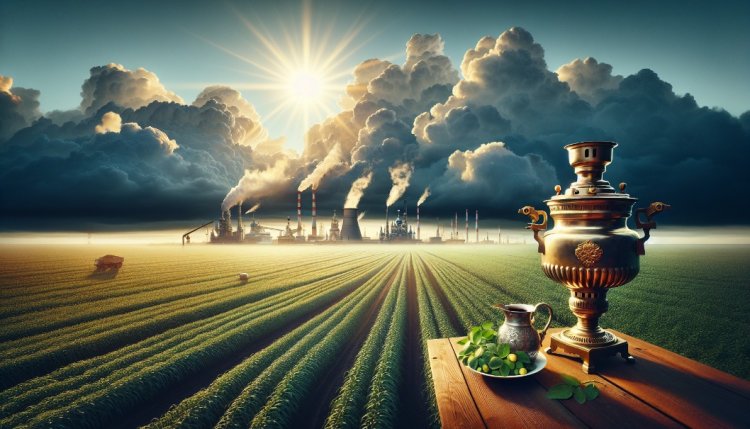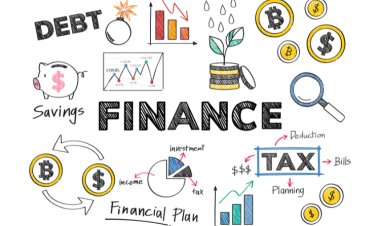Russia's Economic Resilience: Outperforming Western Rivals
Is Russia truly defying the odds? Unravel the factors behind Russia's economic resilience amidst sanctions & geopolitical tensions. Explore energy exports, fiscal discipline, and domestic demand. Understand the complexities and potential future scenarios.

Introduction
In the upcoming American election, Russia is expected to be a dominant issue. Joe Biden's campaign will focus on his response to the war in Ukraine and his efforts to isolate Russia on the world stage. However, despite facing war and sanctions, Russia's economy has shown resilience and outperformed its Western rivals.
Russia's Economic Resilience
Contrary to expectations, Russia's economy has performed better than major Western players like the United Kingdom and Germany. Despite the ongoing war and sanctions, Russia's economy expanded by 3.6% last year, surpassing the predictions of Putin himself. A significant increase in industrial output, which has risen by more than 60% over the past two years, has boosted the growth figures.
Exploring Russia's Economic Resilience
The International Monetary Fund (IMF) has taken note of Russia's economic performance and raised its growth outlook for the country. The IMF predicts that if Russia can maintain its momentum, its GDP will rise by 2.6%. This surpasses Russia's own conservative estimate of growth, which was around 1%. The numbers suggest that Russia has prevailed over its Western rivals, disproving predictions of recession and collapse.
Reasons Behind Russia's Economic Resilience
The reasons behind Russia's economic resilience in the face of war and sanctions are multifaceted. One factor could be the boost in industrial output due to increased government spending and investment. Additionally, Russia has diversified its economy, reducing its reliance on oil and gas exports. This diversification has helped cushion the impact of sanctions and global market fluctuations.
While Russia's economic resilience is impressive, the question remains whether it can sustain similar levels of growth in the absence of a war. The future economic trajectory of Russia is yet to be determined, but for now, it has managed to withstand the onslaught of Western sanctions and outperform its Western rivals.
Russia's Economic Growth
Russia's economic resilience has defied expectations, with the country outperforming its Western rivals in terms of GDP growth. Despite facing war and sanctions, Russia's economy expanded by 3.6% last year, surpassing even President Putin's own prediction of 3.5% growth. A significant increase in industrial output, which has risen by more than 60% over the past two years, has fueled this growth.
The International Monetary Fund (IMF) has taken note of Russia's economic performance and upgraded its growth outlook for the country. The IMF now predicts that if Russia can maintain its momentum, its GDP will rise by 2.6%. This is a significant increase compared to Russia's own conservative estimate of around 1% growth. The IMF's numbers suggest that Russia has not only prevailed over its Western rivals but has also surpassed their growth rates.
The reasons behind Russia's economic resilience can be attributed to several factors. Firstly, increased government spending and investment have boosted industrial output, driving economic growth. Additionally, Russia has made efforts to diversify its economy, reducing its reliance on oil and gas exports. This diversification has helped cushion the impact of sanctions and global market fluctuations, contributing to Russia's economic stability.
While Russia's economic growth is impressive, there are questions about its sustainability in the absence of a war. It remains to be seen whether Russia can maintain similar levels of growth without external factors driving its economy. However, for now, Russia's ability to withstand Western sanctions and outperform its Western rivals has significant implications.
Surpassing growth expectations demonstrates Russia's resilience and challenges the predictions of recession and collapse made by Western countries. It underscores Russia's ability to navigate challenging geopolitical situations and maintain economic stability. This could enhance Russia's position on the world stage and potentially influence international relations.
Furthermore, Russia's economic growth has significant implications for its domestic policies and overall development. The increased GDP growth provides a foundation for further economic advancements, such as improving infrastructure, enhancing social programmes, and attracting foreign investments. It also offers opportunities for job creation and improving living standards for the Russian population.
In conclusion, Russia's economic growth has surpassed expectations, with the country outperforming its Western rivals in terms of GDP growth. The significant increase in industrial output, along with diversification efforts, has contributed to Russia's economic resilience. The IMF's upgraded growth outlook further emphasises Russia's economic strength. While questions remain about the sustainability of this growth, for now, Russia has proven its ability to withstand external challenges and maintain stability. The implications of Russia's growth surpassing expectations extend beyond the economic realm and have the potential to shape both domestic and international dynamics.
Russia's Performance versus Western Rivals
Russia's economic resilience and growth have surpassed expectations, outperforming its Western rivals in various aspects. Here's a closer look at how Russia compares to G7 members and other Western countries, the analysis of growth rates, its ability to sustain growth without a war, and the uncertainties surrounding future growth levels.
Comparison with G7 members
When comparing Russia's economic performance with that of G7 members, it becomes evident that Russia is outperforming its Western rivals. Despite being expelled from the group following the annexation of Crimea, Russia's economy has shown greater growth rates compared to the United States, Japan, Canada, France, Italy, the UK, and Germany. This is a significant achievement considering the political and economic challenges Russia has faced, including war and sanctions.
Outperforming the United States, Japan, Canada, France, Italy, the UK, and Germany
While Russia's Western rivals struggle with slower growth rates, Russia's economy expanded by 3.6% last year, surpassing even President Putin's own prediction of 3.5% growth. A significant increase in industrial output, which has risen by more than 60% over the past two years, has fueled this growth. Russia's ability to outperform these major Western players demonstrates its resilience and economic strength.
Analysis of growth rates in Western countries
When comparing growth rates, it is clear that Russia has managed to defy expectations. The International Monetary Fund (IMF) has upgraded its growth outlook for Russia, predicting a rise in GDP of 2.6% if Russia can maintain its momentum. This surpasses Russia's own conservative estimate of around 1% growth. In contrast, Western countries such as the United States, Japan, Canada, France, Italy, the UK, and Germany are experiencing slower growth rates, highlighting Russia's economic resilience.
Russia's ability to sustain growth without a war
One crucial question regarding Russia's economic growth is whether it can sustain similar levels without the presence of a war. While the war has contributed to a boost in industrial output and overall growth, there is uncertainty about Russia's ability to maintain this growth trajectory in the absence of external factors. It remains to be seen how Russia's economy will evolve, but for now, it has showcased its ability to withstand Western sanctions and outperform its rivals.
Uncertainty regarding future growth levels
Although Russia's economic performance has been impressive, there are uncertainties regarding future growth levels. Factors such as geopolitical tensions, global market fluctuations, and the effectiveness of sanctions can influence Russia's economic trajectory. It is essential to monitor the sustainability of Russia's growth and its ability to adapt to changing circumstances for a more accurate projection of its future economic performance.
In conclusion, Russia's economic resilience and performance have exceeded expectations when compared to those of its Western rivals. Outperforming G7 members and maintaining growth rates higher than countries like the United States, Japan, Canada, France, Italy, the UK, and Germany demonstrate Russia's economic strength. However, uncertainties remain about the sustainability of this growth without a war and the future trajectory of Russia's economy. Continued monitoring and analysis will provide a clearer understanding of Russia's economic potential and its implications on the global stage.
Conclusion
Russia's economic resilience and growth have defied expectations, outperforming its Western rivals in various aspects. Despite facing war and sanctions, Russia's economy expanded by 3.6% last year, surpassing even President Putin's own prediction. A significant increase in industrial output has fueled this growth, demonstrating Russia's capacity to withstand external challenges and maintain economic stability.
The International Monetary Fund (IMF) has taken note of Russia's economic performance and upgraded its growth outlook for the country. The IMF now predicts that if Russia can maintain its momentum, its GDP will rise by 2.6%, surpassing Russia's own conservative estimate. This further emphasises Russia's economic strength and resilience.
The reasons behind Russia's economic resilience can be attributed to increased government spending and investment, which have boosted industrial output. Additionally, Russia has made efforts to diversify its economy, reducing its reliance on oil and gas exports. This diversification has helped cushion the impact of sanctions and global market fluctuations, contributing to Russia's economic stability.
While questions remain about the sustainability of Russia's growth without external factors driving its economy, Russia's ability to outperform its Western rivals has significant implications. It challenges predictions of recession and collapse made by Western countries and enhances Russia's position on the world stage. It also has the potential to shape both domestic and international dynamics.
Russia's economic growth has implications for its domestic policies and overall development. The increased GDP growth provides a foundation for further economic advancements, such as improving infrastructure, enhancing social programmes, and attracting foreign investments. It also offers opportunities for job creation and improving living standards for the Russian population.
In conclusion, Russia's economic resilience and outperformance of Western rivals highlight its strength in the face of challenges. The increased industrial output and diversification efforts have contributed to Russia's economic stability. As Russia continues to monitor its economic performance and navigate geopolitical situations, its growth surpassing expectations has the potential to shape both domestic and international dynamics.



 admin
admin 










